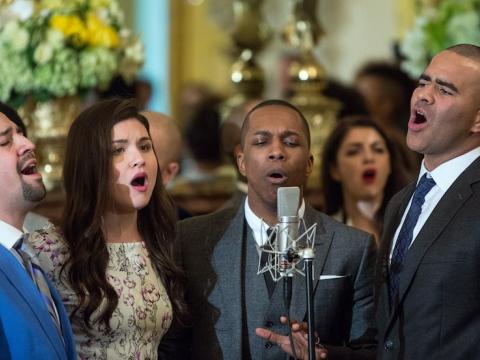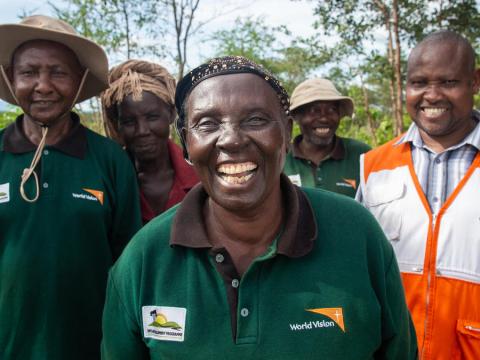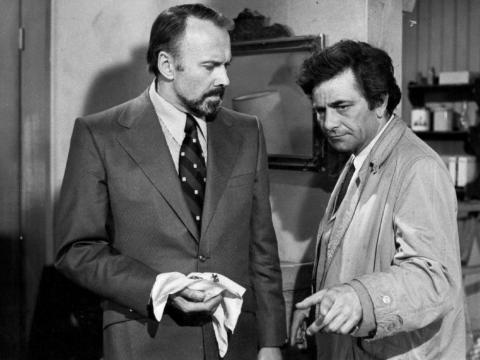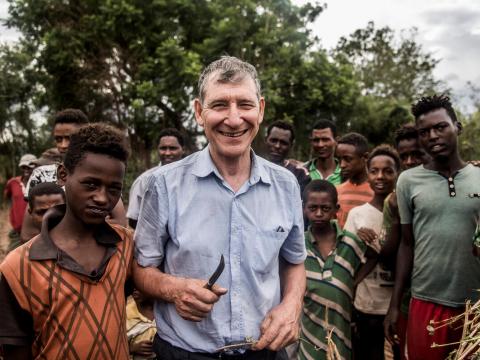
The room where it happens: Why COP26 could be like Hamilton
Jason takes exception to the fact that when it comes to COP26, the bigger the delegation, the more can be at the decision-making tables.
Jason Garrett is World Vision's Senior Resilience Programme Advisor
I recently went to see, and enjoyed, the musical Hamilton in London, England. I would definitely recommend you see it if you enjoy songs about economic policy, establishing national banks and discussions about sovereign debt, all with funky tunes, rap battles and elaborate dance routines.
One of the songs got me thinking about COP26, which might seem like a strange statement, but please bear with me. ‘The Room Where it Happened’ tells the story of Alexander Hamilton meeting with Thomas Jefferson and James Madison to thrash out an agreement about Hamilton’s economic plans, and Jefferson and Madison’s desire to have the new nation’s capital in the State of Virginia, in the South.
Rather that put both plans to Congress where they could be debated and discussed by representatives from all the States at that time (in the way that democracy is supposed to work) Hamilton, Jefferson and Madison met together to put together a compromise plan that was then presented to Congress, as a fait accompli.
Hamilton’s main rival, Aaron Burr, complains in the song that he wasn’t in the room where it happened. Burr is probably just upset that he wasn’t included, but he does make an important point that is relevant for COP26, and many other international conferences.
At these sorts of events countries come with delegations, teams of people who will work on negotiating the deals and agreements to be made. There will be many different discussions going on at the same time, which means that those countries with larger delegations are able to be involved in all of these discussions, while those with much smaller delegations cannot be in every meeting. Of course, it is the wealthy countries that can have the larger delegations, so they are able to dominate the negotiations, whereas poorer countries are not able to engage in every discussion.
And sometimes the important negotiations take place in rooms where only a few have been invited, away from the main negotiating rooms, and decisions and agreements made with only a few people “in the room where it happened”. Given that the COVID-19 pandemic means that travel to Glasgow will be even harder than usual for many countries, particularly the less wealthy, there is a real danger that the important decisions taken at COP26 could happen without the voice of the most vulnerable countries and look too much like Alexander Hamilton in a room with Thomas Jefferson and James Madison making the decisions between themselves.
Now, one thing that Hamilton, the musical, has done extremely successfully is to give opportunities to actors who are people of colour, who will have traditionally not been given roles such as those in a historical piece like Hamilton. It has quite literally enabled their voices to be heard. World Vision is hoping that COP26 will enable people who have largely been under-represented in the past to have a voice, especially children and particularly children from the most vulnerable countries and communities.
This is why World Vision will be involved in different events at COP26 that will give an opportunity for children to speak about their experiences of climate change and what they want to see happen at the conference. It is also why we put together a report last year based on what children across the world wanted to say about climate change. This was called Talk Less and Act More – the World needs help.
Which of course, sounds like some advice that Aaron Burr gave to Alexander Hamilton in another song from the show.
*******
Jason Garrett, is World Vision UK's Senior Resilience Programme Advisor. With more than 15 years experience in advising offices around the world on disaster risk reduction, sustainable livelihoods, and climate change adaptation projects and policy.
Image: Cast members perform musical selections from the Broadway musical "Hamilton" in the East Room of the White House, March 14, 2016. (Official White House Photo by Amanda Lucidon)


